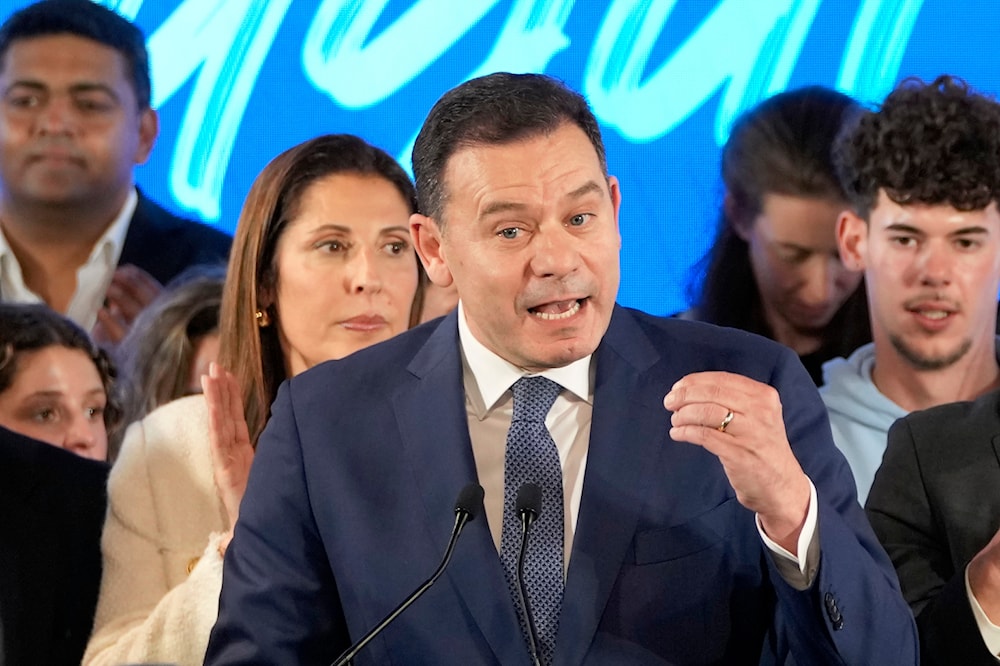Portuguese parliament fails to elect president
Portugal's new parliament, majorly constituted of new Prime Minister Luis Montenegro's AD party, fails to secure the required votes for its presidential candidate.
-

Luis Montenegro, leader of the center-right Democratic Alliance, delivers a speech to supporters claiming victory in Portugal's election, in Lisbon, on Monday, March 11, 2024. (AP)
Portugal's new parliament hit a dead end in its first session on March 26 as it could not elect a president.
Prime Minister Luis Montenegro's center-right party did not get the 116 votes required to see its candidate Jose Pedro Aguiar-Branco elected as president, as even though it is the largest in parliament, it needs the far-right Chega party to secure a majority in parliament.
Montenegro constantly rejected any coalition with Chega, however, he vowed to form a minority government.
Andre Ventura, Chega's leader, has emphasized that he would be accountable for any political instability, however, Montenegro stressed after he was sworn in that there was "no internal or external reason to doubt our ability to have a stable government".
Chega blames AD
Although Chega's leader, Andre Ventura, said on March 25 that the party would vote for Aguiar-Branco, results revealed that many of his party's 50 MPs did not.
Ventura pointed fingers toward members of Montenegro's Democratic Alliance (AD) for publicly going back on an agreement between the two parties that would have locked in Chega's support.
The AD then withdrew Aguiar-Branco's candidacy.
Luis Montenegro's recent win
Montenegro, a lawyer and the leader of the Portuguese right-wing Social Democratic Party and the Democratic Alliance coalition, was officially appointed as Portugal's new prime minister on March 21.
Portugal had been one of the few European countries led by the Left until former Prime Minister Antonio Costa of the Socialist Party abruptly resigned amid a "graft investigation" that looked into his place of residence and sacked his chief of staff.
Despite gaining 79 seats out of 230, Montenegro secured his win by vowing to induce economic growth through reduced taxes, improving public health services, and enhancing education services that have taken a hit due to teacher strikes calling for better pay.
The Democratic Alliance, which forms Montenegro's Social Democratic Party and two smaller conservative parties, also gained the support of the Liberal Initiative Party, though it would still need to garner the backing of the Anti-immigration Party, Chega, to reach a 116-majority in parliament.
Following Montenegro's meeting with Portuguese president Marcelo Rebelo de Sousa, reporters revealed that his government will be introduced and officially instated on April 2.

 3 Min Read
3 Min Read








